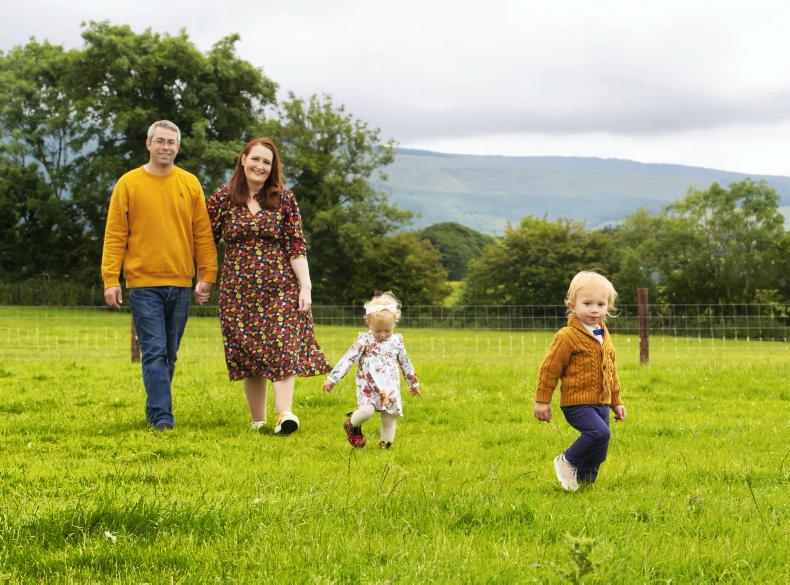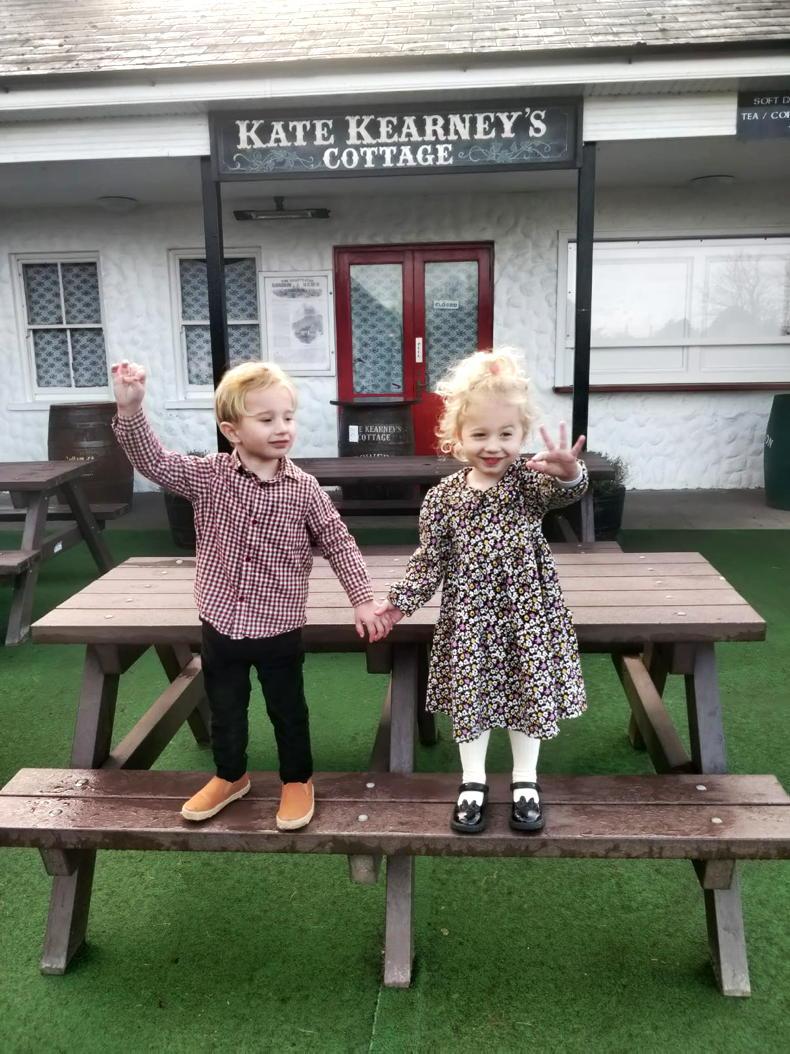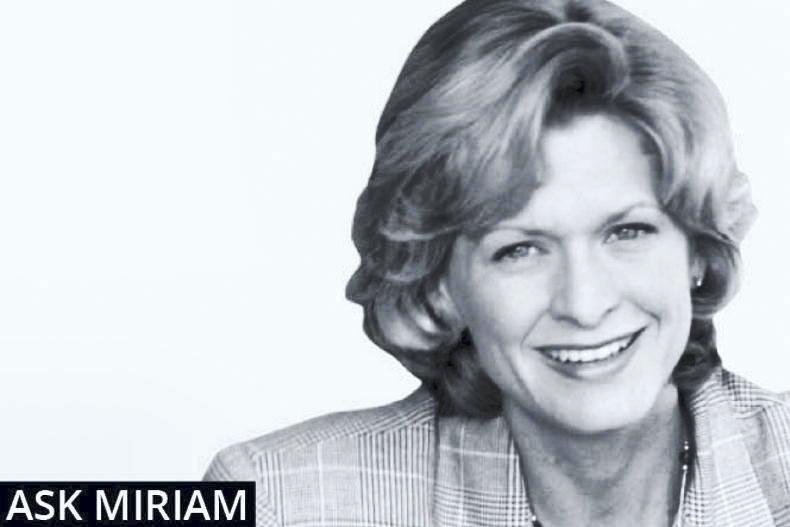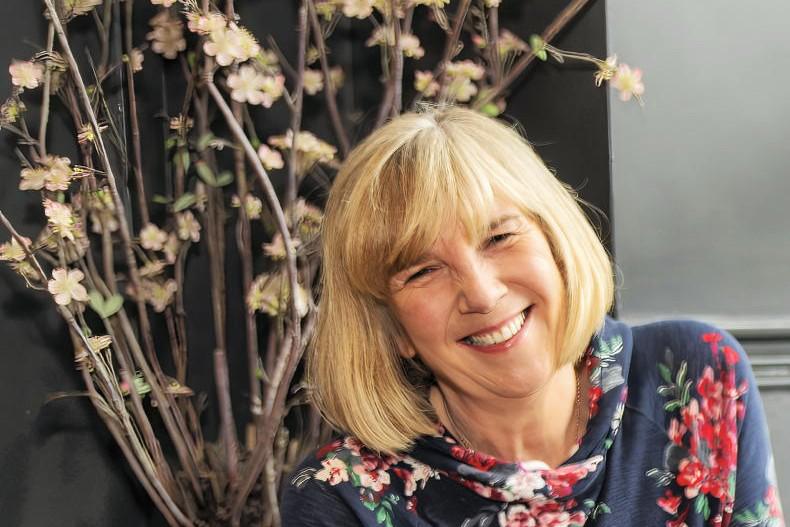In December 2022, an announcement was made that the Government had approved policy proposals to recognise international surrogacy?. These proposals, once drafted, would see previous international surrogacy arrangements officially recognised by the State – meaning that parents could finally have their legal relationship with their children recognised under Irish law.
However, for the many families in Ireland who have availed of surrogacy, the time spent waiting to see the changes they need is causing stress and worry.
The new legislative provisions will need Government approval once drafted before being inserted ?to the Health? (Assisted Human Reproduction or AHR) Bill 2022 at Committee Stage. Irish Country Living spoke to Senator Mary Seery Kearney, who was part of the Joint Committee on International Surrogacy and is mother to daughter Scarlett (7), through surrogacy.
“Parents of children born via surrogacy, providing they meet a certain number of criteria in accordance with those set out by the Assisted Reproduction regulatory authority, will be able to apply to court for a parental order to be the exclusive parents of the child post-birth,” she explains of the policy proposals.
What’s needed?
Mary explains that the legislation would need to have a retrospective [dealing with past events] and a prospective [likely to happen in the future] element.
“From a prospective element, it would be you apply to the authority, you meet the criteria, you’ll get an agreement to go and pursue your surrogacy,” she says.”
“The retrospective element needs to be that there is a court application that entitles the parent to apply for a parental order. My understanding of this is that there will be a window of three years in which parents can do that and make that application. Anyone who needs it will get it, subject to proving that you were the parent at the material time of the birth of the child, that you are the intended parent, and that the surrogacy was lawful in the country it was carried out and a number of other things like that.”
“Hopefully we will have the legislation in before as an amendment to the AHR Bill before Easter. That is apparently what is proposed.”
Daily life
Currently, the parents not recognised in Irish law have to sign themselves as guardians to their children, even when filling out the most basic forms. Mary highlights other situations where relationships have broken down and the recognised father has weaponized the child against the other parent. She explains that the policy proposals will help protect the rights of the second parent in these situations.
“Overall, it will also mean that we will be able to safeguard, in as far as it is possible, surrogates going forward under the new regime - their rights and their health and wellbeing.”
Ukraine
Many Irish couples have travelled to Ukraine for their surrogacy. In Ukraine, the intended mother of the child is recognised as the mother on the child’s birth certificate. This changes when couples return to Irish soil.
The Russian invasion of Ukraine in 2022 has significantly changed the situation. The security status for Ukraine from Department of Foreign Affairs currently stands at “do not travel.” In relation to surrogacy arrangements, the Department “strongly advises against commissioning surrogacy arrangements in Ukraine.”
So where does this leave Irish families who were already in the process of surrogacy in Ukraine before the war?
“Well, one would have expected that it would deter people from pursuing surrogacy in Ukraine,” says Mary. “However, a lot of families paused their surrogacy journey with Ukraine for a period of time last year. Then things settled down a little bit in Kyiv and Lviv and a lot of families had already paid over a large amount of money.
“Also, they have embryos that will be the full siblings to their current child, so a lot of couples returned and have pursued surrogacies in Ukraine. There are babies due all the time, for the next number of months from Ukraine.”
Cathy Wheatley spoke to Irish Country Living in 2021 about her journey to becoming a mother through surrogacy. She is mother to twins Ted and Elsie through surrogacy in Ukraine. Irish Country Living
“People have been saying, ‘Congratulations, you must be delighted.’ It’s not done yet,” she says.
Ted and Elsie’s surrogate mother Ivana is from Ukraine. When war broke out last year, Cathy offered Ivana safety in her home in Co Wicklow. Ivana, her mother and her three children are currently living with Cathy and her family. This presents its own challenges, as in Ireland, Ivana is recognised as Ted and Elsie’s mother.

Cathy Wheatley's twins Ted and Elsie, now aged three and a half
“She thought she would have to look after them here and she didn’t want to do that,” explains Cathy. “She was saying, ‘I am not their mother.’”
Another worry that remains for Cathy, as well as many other families, is inheritance. Currently, if something were to happen to the father of a child born through surrogacy, the mother would not be able to pass on the estate to the child the same way as other families. For Cathy, this relates to the sheep farm she lives on with her husband, Keith.
“I can’t even protect their heritage,” she says. “The farm has been in the family for generations.”
Although she believes that the government are “really doing the work,” she feels that as time goes on and Ted and Elsie get older, more complications will arise without legislation. She explains that parents could have their rights recognised outside of the AHR Bill, which would speed up the process to recognising mothers and second parents’ rights to a legal parental relationship with their children.
Stating it simply, she says, “We are asking the Government to just look at the children.”
Read more
Children born through surrogacy disenfranchised on their inheritance
‘Now we’re still fighting for equality for our children’
In December 2022, an announcement was made that the Government had approved policy proposals to recognise international surrogacy?. These proposals, once drafted, would see previous international surrogacy arrangements officially recognised by the State – meaning that parents could finally have their legal relationship with their children recognised under Irish law.
However, for the many families in Ireland who have availed of surrogacy, the time spent waiting to see the changes they need is causing stress and worry.
The new legislative provisions will need Government approval once drafted before being inserted ?to the Health? (Assisted Human Reproduction or AHR) Bill 2022 at Committee Stage. Irish Country Living spoke to Senator Mary Seery Kearney, who was part of the Joint Committee on International Surrogacy and is mother to daughter Scarlett (7), through surrogacy.
“Parents of children born via surrogacy, providing they meet a certain number of criteria in accordance with those set out by the Assisted Reproduction regulatory authority, will be able to apply to court for a parental order to be the exclusive parents of the child post-birth,” she explains of the policy proposals.
What’s needed?
Mary explains that the legislation would need to have a retrospective [dealing with past events] and a prospective [likely to happen in the future] element.
“From a prospective element, it would be you apply to the authority, you meet the criteria, you’ll get an agreement to go and pursue your surrogacy,” she says.”
“The retrospective element needs to be that there is a court application that entitles the parent to apply for a parental order. My understanding of this is that there will be a window of three years in which parents can do that and make that application. Anyone who needs it will get it, subject to proving that you were the parent at the material time of the birth of the child, that you are the intended parent, and that the surrogacy was lawful in the country it was carried out and a number of other things like that.”
“Hopefully we will have the legislation in before as an amendment to the AHR Bill before Easter. That is apparently what is proposed.”
Daily life
Currently, the parents not recognised in Irish law have to sign themselves as guardians to their children, even when filling out the most basic forms. Mary highlights other situations where relationships have broken down and the recognised father has weaponized the child against the other parent. She explains that the policy proposals will help protect the rights of the second parent in these situations.
“Overall, it will also mean that we will be able to safeguard, in as far as it is possible, surrogates going forward under the new regime - their rights and their health and wellbeing.”
Ukraine
Many Irish couples have travelled to Ukraine for their surrogacy. In Ukraine, the intended mother of the child is recognised as the mother on the child’s birth certificate. This changes when couples return to Irish soil.
The Russian invasion of Ukraine in 2022 has significantly changed the situation. The security status for Ukraine from Department of Foreign Affairs currently stands at “do not travel.” In relation to surrogacy arrangements, the Department “strongly advises against commissioning surrogacy arrangements in Ukraine.”
So where does this leave Irish families who were already in the process of surrogacy in Ukraine before the war?
“Well, one would have expected that it would deter people from pursuing surrogacy in Ukraine,” says Mary. “However, a lot of families paused their surrogacy journey with Ukraine for a period of time last year. Then things settled down a little bit in Kyiv and Lviv and a lot of families had already paid over a large amount of money.
“Also, they have embryos that will be the full siblings to their current child, so a lot of couples returned and have pursued surrogacies in Ukraine. There are babies due all the time, for the next number of months from Ukraine.”
Cathy Wheatley spoke to Irish Country Living in 2021 about her journey to becoming a mother through surrogacy. She is mother to twins Ted and Elsie through surrogacy in Ukraine. Irish Country Living
“People have been saying, ‘Congratulations, you must be delighted.’ It’s not done yet,” she says.
Ted and Elsie’s surrogate mother Ivana is from Ukraine. When war broke out last year, Cathy offered Ivana safety in her home in Co Wicklow. Ivana, her mother and her three children are currently living with Cathy and her family. This presents its own challenges, as in Ireland, Ivana is recognised as Ted and Elsie’s mother.

Cathy Wheatley's twins Ted and Elsie, now aged three and a half
“She thought she would have to look after them here and she didn’t want to do that,” explains Cathy. “She was saying, ‘I am not their mother.’”
Another worry that remains for Cathy, as well as many other families, is inheritance. Currently, if something were to happen to the father of a child born through surrogacy, the mother would not be able to pass on the estate to the child the same way as other families. For Cathy, this relates to the sheep farm she lives on with her husband, Keith.
“I can’t even protect their heritage,” she says. “The farm has been in the family for generations.”
Although she believes that the government are “really doing the work,” she feels that as time goes on and Ted and Elsie get older, more complications will arise without legislation. She explains that parents could have their rights recognised outside of the AHR Bill, which would speed up the process to recognising mothers and second parents’ rights to a legal parental relationship with their children.
Stating it simply, she says, “We are asking the Government to just look at the children.”
Read more
Children born through surrogacy disenfranchised on their inheritance
‘Now we’re still fighting for equality for our children’












SHARING OPTIONS